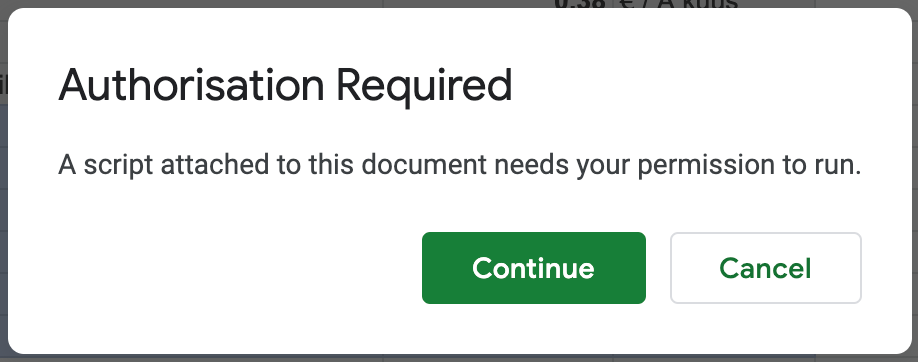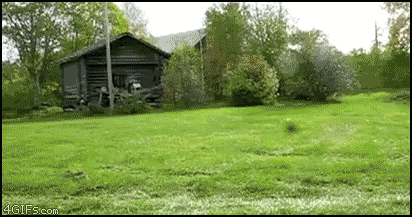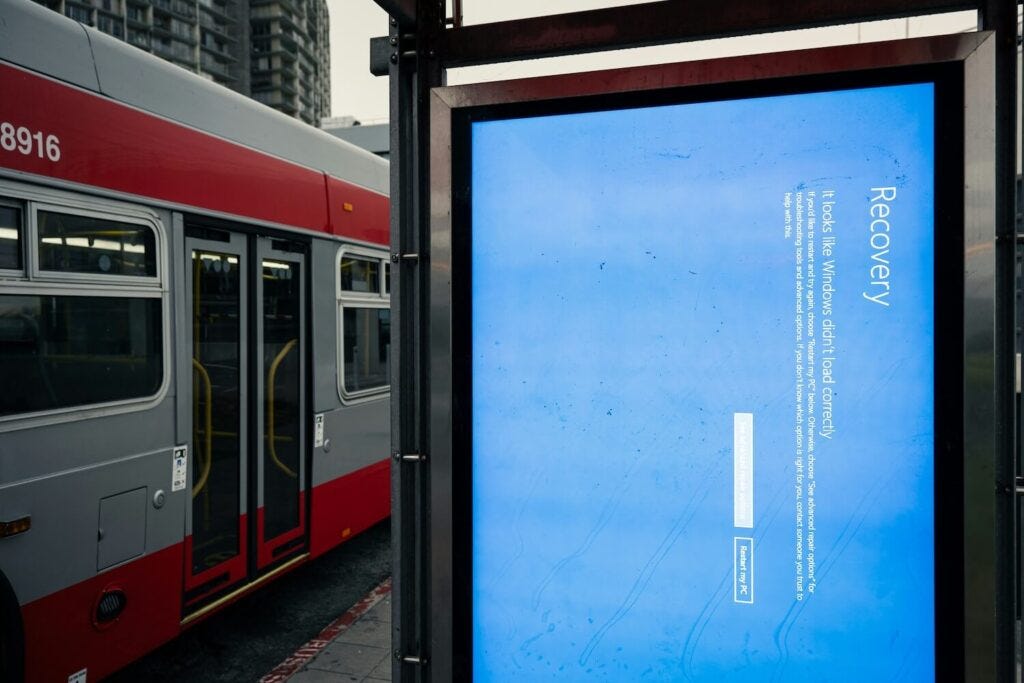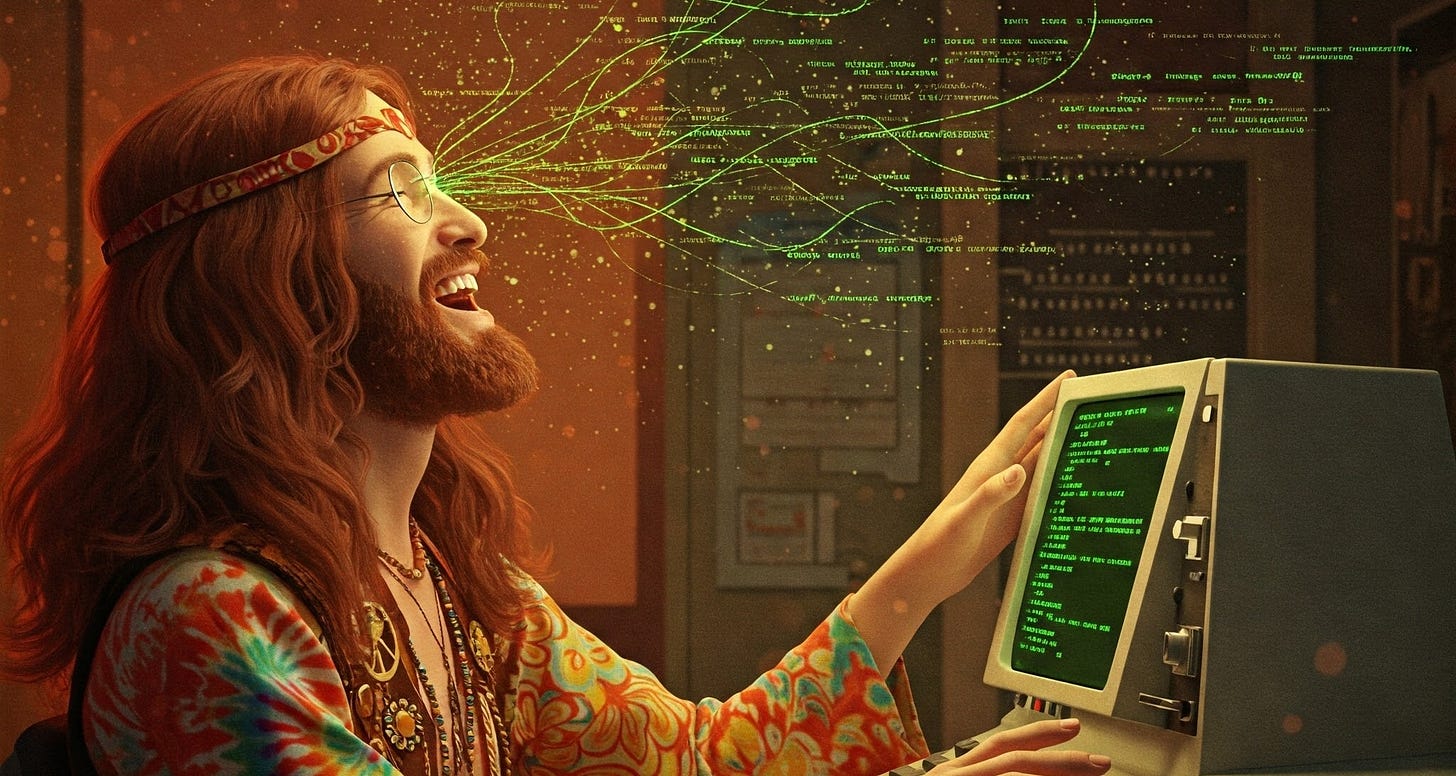This is how you set yourself free
Computing for the apocalypse, downloading a tractor for free, the promise of 70s DIY culture, and why vibe coding will end us all.
I spent the past year getting to know two fascinating individuals: Virgil Dupras, Canadian developer who developed an operating system to survive the end of the world, and Marcin Jakubowski, a Missouri farmer who built an open sourced toolkit capable of rebuilding civilization.
My deep dives into each project can be found on Wired and MIT Technology Review (respectively), but my biggest takeaways are as follows…
How much do you actually know about the tech you use today?
If Apple were to suddenly decide to lock you out of your iCloud… if Microsoft kicked you off of your workspace… if the operating system running your smart fridge shuts down, what would you do? Do you know how to fix it?
There’s no question that technology facilitates nearly every aspect of modern life: we rely on our stoves to cook, washing machines to do laundry, and smartphones for pretty much everything else. The pursuit of convenience has galvanized our reliance on technology, so much so, we compromise on the basics just to maintain access.
Ask yourself this: if Google were to prompt you with a request to give up even more of your data before allowing you to re-access your drive, would you do it? Why?
It’s a tale as old as time: when we buy and depend on technology that meet our needs without understanding how it works, we give the companies who own the technology the power to alter it —or exploit us— however they choose.
Remember when we knew how to fix our own things?
The obsession with the hot car mechanic had to come from somewhere.
In the 70s (pre-Google), Stewart Brand created the Whole Earth Catalog — a publication that promoted “Access to Tools.” By publishing information and tutorials about technology that help you live sustainably and self-sufficiently, the Whole Earth Catalog kickstarted the maker movement, which started Burning Man, inspired the now-extremely watered down concept of “democratizing access,” and subsequently became the core ethos of Silicon Valley.
Stanford professor Fred Turner lays this trajectory out in his book From Counterculture to Cyberculture:
“The Whole Earth Catalog promised that the individual, armed with the right tools and information, could remake the world from the bottom up… By the 1990s, the rhetoric of personal liberation through technology that had characterized the counterculture had become the rhetoric of economic and political liberation through technology in the digital age.”
When we spoke over the phone,1 Brand emphasized how Youtube (as a source for tech tutorials) is a game changer today. “You can just go online and find it,” he said.
Stewart is working on a book on the history and philosophy of maintenance. He is also the person Steve Jobs quoted when he famously said: “stay hungry, stay foolish.”
We can set ourselves free by building our own tools
Even if we knew how to fix our things, capitalism often prevents us from doing so.
Most farmers today rely on agricultural tools from a small handful of companies. But much like Apple Care, fixing those tools yourself voids any warranty and is often impossible (most repairs require specialized parts only sold by the same manufacturer).2
So Marcin Jakubowski, 53-year old founder of Open Source Ecology, decided to build his own tractor from scratch (exclusively using off-the-shelf materials) and put all the instructions and specifications online. He insists, a tractor is infinitely repairable if you build it yourself.
Jakubowski’s organization Open Source Ecology has since expanded on this ethos by designing and building a collection of 50 tools capable of rebuilding civilization — brick presses, power generators, even a 3D printer. The thinking goes: we free ourselves from the artificial constraints (set by corporate interests) by being creators ourselves.
If we can create our own means of communicating, storing information, entertainment… we can free ourselves from ever-compounding subscription fees and intrusive privacy policies. There are already experiments of this idea. My personal favorite, an open source kindle, gives us a glimmer of hope.
Jakubowski is currently tackling the housing market with his work on open sourced hardware. Read my Technology Review profile on Jakubowski here.
We’re helpless in a blackout
Over the past year or so, we’ve witnessed an AWS, CrowdStrike, and Google cloud outage that sent millions into panic. Thousands of flights delayed, hundreds of thousands of meetings cancelled, and billions of dollars lost.
The term ‘technology’ has become so closely associated with social media, we forget about all the less sexy pieces of tech we use everyday. How would we get places without Google Maps? call without speed dial? climb 40 flights of stairs without an elevator? In the event of an apocalypse, we’re unequivocally cooked.
We take so much of technology (and how it works) for granted. For one, aside from Linus Torvalds of Linux himself, there are only a handful of people who fully comprehend how an operating system works. Those who understand (and therefore are capable of rebuilding) would become the rulers of a post apocalyptic world, according to Canadian developer Virgil Dupras.
Vibe coding will end us all.
Technology today is built on layers upon layers of abstraction. Tools are built to simplify other tools, that are themselves simplifications of other tools, all in the name of accessibility (for example, Python is an abstraction of C, which is an abstraction of Assembly, which is an abstraction of Machine Code). But simplification inevitably erases nuance, which ultimately voids complexity.
Vibe coding is posited as the end state of these abstractions. The ultimate goal of integrating AI into programming is to make the english language THE programming language. But this approach, much like the way children are struggling with handwriting, eliminates the need for any fundamental understanding of how things work. Never mind the exponential amount of resources required.
Dupras, wary of this reality, built an operating system using Forth — an archaic, low-level programming language. By breathing life back into a forgotten, fundamental programming language, he underscores the importance of knowing how things work.
Dupras is still working on his post-apocalyptic project DuskOS. Read my WIRED profile on him here.
Learn how things work
Resilience in the 21st century is less about knowing how to farm and more about managing your dependence on technology. By making every tool we use ‘smart,’ we substitute our own intelligence for convenience.
Tinker with your tech! Void some warranties! Stay informed!
Hello friends! I recently enabled paid subscriptions to support some of my more rogue ventures in cyber celibacy (typewriters, building a printing press… more to come).
I also created a Snail Mail Membership, where (in true neo-luddite fashion) I’ll physically mail you this newsletter on a bi-monthly basis. For the first dozen snail mail members, I’ll handwrite your first letter <3
On which he butt dialed me on
As of 2025, only the state of Colorado has given farmers the (limited) right to repair.










Do you still offer snail mail? If so, how can I sign up? Loved the article 🩶